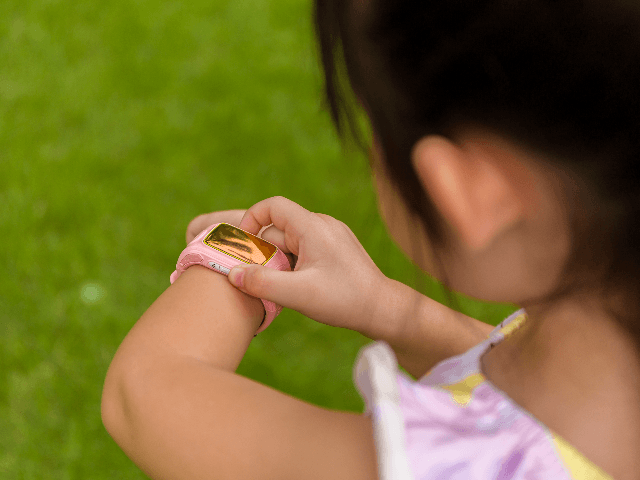The Chinese government this week launched what it describes as a voluntary security program in the southern city of Guangzhou by handing out 17,000 free smart watches to elementary school children.
These “Safe Campus Smartwatches” are linked into BeiDou, China’s new version of the GPS tracking system, and monitor the child’s location to within 30 feet at all times.
Parents can use a smartphone app to track the location of their children and will receive emergency alerts if the child triggers that function of the watch. The watches can also respond automatically to certain conditions, such as sending a warning message if they are submerged underwater, making parents aware that their children may have encountered a water hazard.
Of course, the children and their parents will also be monitored by several agencies of the Communist Chinese government, including the police and the Ministry of Information Technology.
Chinese media reports stress that the program is voluntary and the children appear delighted with their free watches. About half of the units have reportedly been brought online since distribution began. Some school officials explained that smartphones have been banned from their classrooms, so the more restricted smartwatches give students a way to communicate with their parents without all of the distractions associated with a phone.
The UK Telegraph on Wednesday noted the Safe Campus Smart Watchers are far from the only recent effort made by the Chinese government to track both children and adults more closely, and some of the others were considerably more controversial. The Telegraph reported:
In December, more than ten schools in Guizhou and Guangxi provinces began requiring students to wear “intelligent uniforms” embedded with computer chips to track their movements and trigger an alarm if they skip class, according to state media.
Two chips, sown into the shoulders of school jackets, can sustain around 500 wash cycles and temperatures of 150 degrees Celsius.
Facial recognition scanners at school gates match the chips with the correct students, meaning anyone who tries to swap jackets in order to play truant will be caught. Alarms will also sound if a pupil falls asleep in class.
Last May, a high school in Hangzhou installed facial recognition technology to check how attentive pupils were in class.
Movements of students are watched by three cameras positioned above the blackboard, and can pick up seven different emotions, including neutral, happy, sad, disappointed, angry, scared and surprised. If the technology concludes a student is distracted in class, it will send a notification to the teacher to take action.
A major controversy erupted in China several months ago when a school was discovered to be secretly attempting to purchase thousands of radio-tracking wristbands that would have not only monitored the location of students but also tracked how much physical activity they experienced during the school day and how often they raised their hands in class. Other schools say they have used such tracking devices to improve the educational experience by tracking where students go on campus to discover their hidden interests and talents.
The Telegraph pointed out that Beijing has been very aggressive in pushing the adoption of its BeiDou satellite positioning system, requiring automobiles and consumer products such as Huawei smartphones to integrate with it.
The UK Daily Mail noted that Chinese parents are anxious over attacks on schools and a child abduction problem that is much more serious than the government wants to admit.

COMMENTS
Please let us know if you're having issues with commenting.